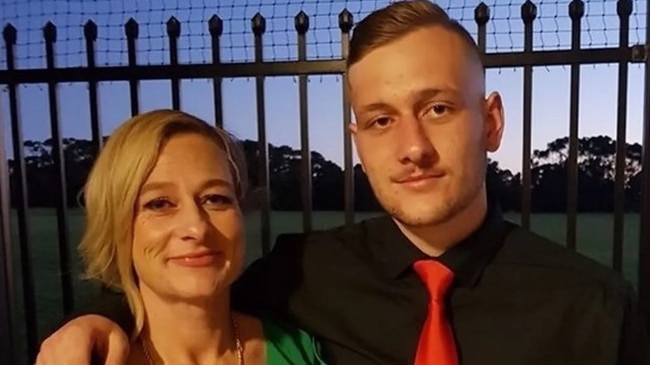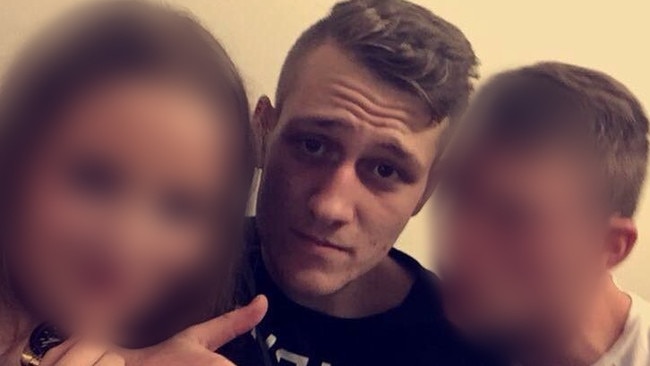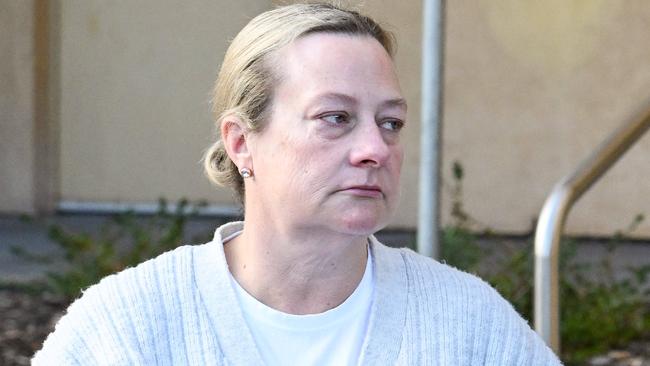Inquest into death of Kobee Huddy, who was shot dead by police in 2019 after seeking mental health support
A young man in the midst of a spiralling mental health crisis called for help less than an hour before being shot by police – but was met with a “rude”, “blunt” and “uninterested” response.

Police & Courts
Don't miss out on the headlines from Police & Courts. Followed categories will be added to My News.
A young man in the midst of a mental health crisis asked for help from a mental health triage social worker less than an hour before he was shot by police – but was met with a “rude”, “blunt” and “uninterested” response, an inquest has heard.
Kobee Huddy was 20 when he died from a single gunshot wound to the chest on May 25, 2019.
On Wednesday, Deputy Coroner Ian White begun an inquest into Mr Huddy’s death.
Counsel assisting the Coroner Peter Longson said in his opening that Mr Huddy’s mental health had been spiralling in the days before his death.
The court heard that during the week before the shooting, Mr Huddy had approached an Anglicare counsellor to discuss self-harm.
The counsellor gave Mr Huddy a number of strategies, including calling Lifeline, the Mental Health Triage Service and emergency services.
Mr Longson said Mr Huddy had been drinking the night before and had needed to go to hospital for treatment for self harm injuries. He then returned to his girlfriend’s home in Seaton.

The court heard many of Mr Huddy’s mental health issues went hand-in-hand with his sporadic binge drinking.
Mr Longson said Mr Huddy had been the subject of several Code Black calls while intoxicated in hospital, and had needed to be restrained or sedated.
“When he sobered up he was polite, respectful and engaging, which appeared to be his normal demeanour,” Mr Longson said.
Around 8am on May 25, Mr Huddy’s girlfriend left for work and he called the mental health triage line.
Mr Longson said a recording of the call showed the social worker was “blunt and uninterested in the request for help”.
An audio recording of the phone call showed that when Mr Huddy asked how to stop self harming, the operator responded “I don’t know, you just have to stop”.
Mr Huddy said he was just looking for advice and the operator responded “like what, I don’t have any special advice”.
During the nine minute phone call Mr Huddy told the operator he had been discharged from hospital only hours before for self harm and was now “dripping blood”.
In audio played to the court the operator told an ambulance staff member that the 20-year-old was “playing games again” and “speaking in riddles”.
Mr Huddy had hung up by the time the ambulance tried to take his call.
Mr Longson said Mr Huddy then called Lifeline and had a 20-minute conversation with them before calling the triple zero emergency line. He told the operator he had a firearm and would “start firing at c***s”.
The Lifeline operator also called emergency services.
The court heard Mr Huddy had no known negative attitudes towards police and came from a family which included police officers.

Mr Longson said multiple police patrols were sent to Seaton where they were to rendezvous several streets away from the house.
A lone officer in a patrol car was asked to drive by the property and note the licence plate of any cars.
As he drove past, a silver Mercedes-Benz left the property with three people inside.
The court heard the officer decided to pull the car over about 9.40am. He was not equipped with a taser or body-worn camera.
Mr Huddy was in the front passenger seat and told the officer “I’m the one you’re looking for”.
Mr Longson said Mr Huddy got out of the car and produced a 30cm-long kitchen knife. The officer drew his service weapon and walked backwards away from Mr Huddy.
He backed up around 30m down the street while radioing for urgent assistance. As patrols converged on the street, Mr Huddy took two rapid steps towards the officer, who fired a single shot into Mr Huddy’s chest.
He fell to the ground and when asked if he had another knife, indicated his right pocket. He told the first officer to his side that he was “sorry”.
Mr Huddy died from the injury just under two hours later in hospital.
Brad McCloud, for Mr Huddy’s family, told the court the family did not hold any personal animosity towards the police officer who fired the shot.
However, they wanted answers about what happened that morning and whether anything could have prevented the tragedy.
The inquest continues.


